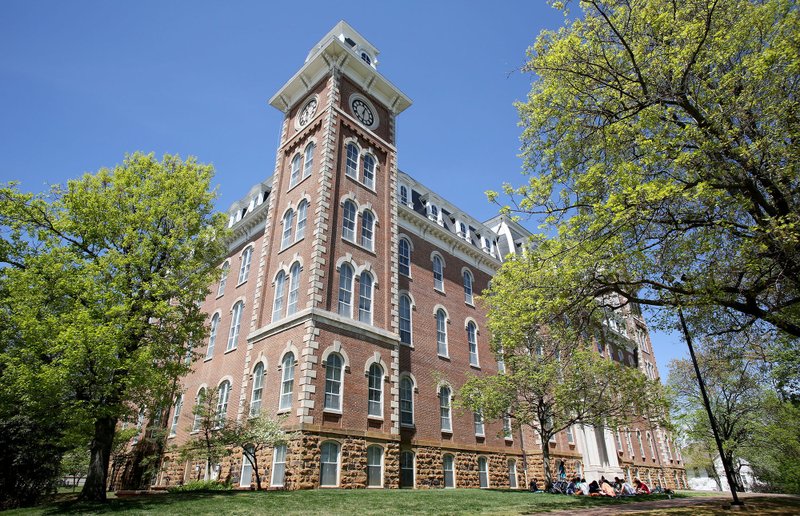FAYETTEVILLE -- An effort that started with a $10.2 million, three-year Walton Family Foundation grant to place teachers in high-poverty schools has stopped taking applications after failing to meet its recruitment goal.
The foundation in 2017 approved the grant to the University of Arkansas, Fayetteville to start the Arkansas Academy for Educational Equity.
In December 2017, the university announced the pilot project as seeking to train between 150 and 200 early-career teachers.
So far, 97 teachers have started in the program since its launch, Tom Smith, a UA education professor who co-wrote the proposal to start the academy, said in a statement. The 2019-20 school year topped all others with a cohort of 60 teachers starting in the academy.
But while the program has involved both recruitment and training -- with participants working towards a UA master's degree in educational equity -- some have dropped out.
Out of the 97 who have started, "only 47 have completed the program due to various factors, including the pandemic," Smith said.
"Also, some teachers underestimated how difficult it might be to teach full time in a high-needs school while also taking multiple graduate classes (and some had the additional factor of moving from another state)," Smith added.
The academy's website is offline and its future depends on the outcome of discussions with the Walton Family Foundation, UA spokeswoman Shannon Magsam said.
"Until additional funding is secured, recruitment of further Academy candidates has been temporarily paused and the website has been taken offline," Magsam said in an email.
Magsam said the university has been "in discussion with the Foundation about possibly consolidating the Academy with other privately-funded education programs in the college that have a similar mission." She said it's possible that multiple UA programs could come under "one umbrella."
"The master's degree in ed equity will continue if it becomes one of the programs brought under one umbrella," Magsam said.
A report submitted to the Walton Family Foundation last year noted the program's retention.
"Over the past year, 12 Equity Fellows left the program due to a variety of reasons including health issues, personal issues, academic deficiencies, and the COVID-19 pandemic. Candidate retention continues to be a focus of the Academy team," stated the report, which was released under the state's public disclosure law.
Smith, in his statement, also noted that a hiring freeze in place at UA at the time prevented the hiring of a coaches for the teacher fellows. This resulted in a decision to limit the size of the program's third cohort to 10 members, with 32 additional candidates instead offered deferred admission, Smith said.
Out of those 32 candidates with deferred admission, 14 began the program in the current 2021-22 school year, Smith said.
Magsam said there are 14 fellows now in the program, including four in their second year of the program and 10 in their first year.
The academy remains active, she said, as it provides the fellows support that includes helping them apply to partnering school districts to teach, as well as coaching them on classroom skills.
"The grant is actually running for a fourth year to fully expend the money given for the original intended purposes," Magsam said. The budget extends through June 30 of next year, she said.
The academy's founding director, Eric Mayes, took a new job in Wisconsin that started Nov. 1, according to Lawrence University, where Mayes is working as vice president for diversity, equity, and inclusion.
Mayes has not been director of the academy since June 30, "when his role switched to teaching graduate courses to fellows," Magsam said.
Magsam said Mayes has continued to teach remotely, as the graduate program is online. His last day as a UA employee is Dec. 3, Magsam said. His $200,000 salary is being paid for with the Walton Family Foundation grant, she said.
Nick Patterson is director of operations for the academy, Magsam said. His salary and the salaries of remaining staff are fully paid by the Walton Family Foundation grants, Magsam said.
School districts listed in the 2020 report to the Walton Family Foundation as partnering with the academy included the Little Rock School District, the Pulaski County Special School District, the Pine Bluff School District, and the El Dorado School District, among several others.
